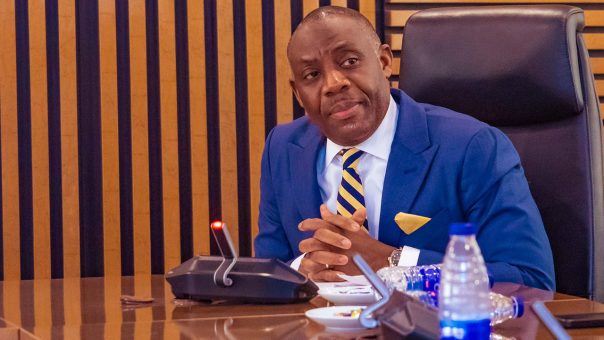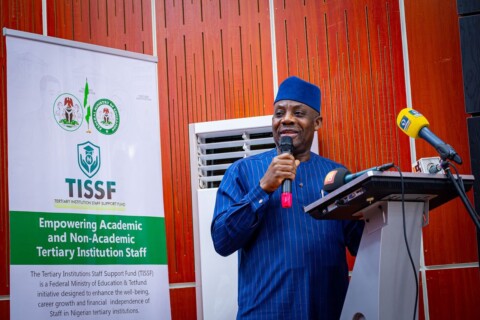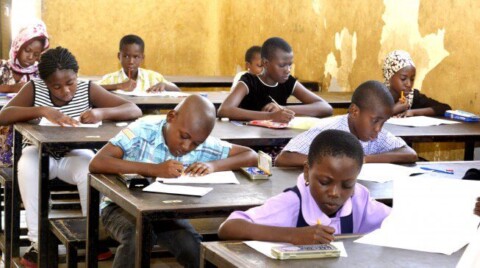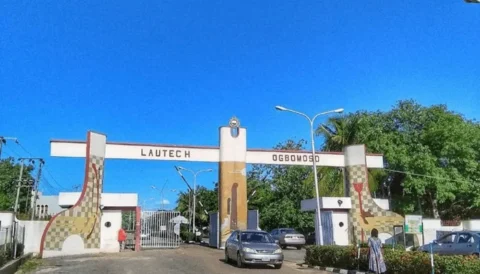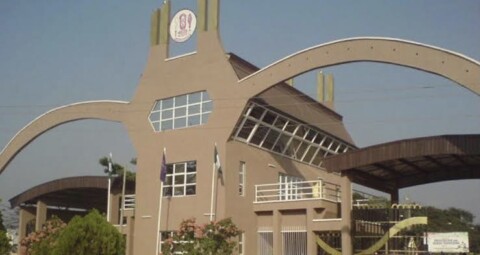Nigeria’s Minister of Education, Dr. Maruf Olatunji Alausa, has announced sweeping reforms across the education sector, aimed at transforming access, quality, and relevance through targeted funding, innovative programmes, and structural changes.
During a media briefing in Abuja, Dr. Alausa, who took office in October 2024, outlined the federal government’s multi-pronged strategy to address key issues such as the high number of out-of-school children, poor technical education, infrastructural deficits, outdated curricula, and low teacher capacity.
A central pillar of the reforms is the launch of the Basic Education Transformation Agenda (BETA), designed to boost enrollment and enhance learning outcomes. Under this initiative, conditional cash transfers will be given to mothers to encourage school attendance, while the government, through its Back2School Drive and in partnership with the National Commission for Almajiri and Out-of-School Children Education, will fully cover the cost of enrollment for targeted children.
The Minister revealed that the national basic education curriculum has been revised to reflect 21st-century priorities, with greater focus on critical thinking, digital literacy, entrepreneurship, and civic responsibility. Civic education is now a core subject from basic to post-basic levels.
One of the standout reforms is the complete overhaul of Technical and Vocational Education and Training (TVET), supported by ₦120 billion approved by President Bola Tinubu. Beginning in the 2025/2026 academic year, students in federal and state technical colleges will benefit from free tuition, feeding, accommodation, uniforms, and safety gear, along with monthly stipends of ₦22,500. The programme will emphasize practical learning (80%) over theory (20%) and will include certified trainers, as well as structured internships in relevant industries. The government aims to train five million youth over the next four years.
To realign tertiary education with national development goals in sectors like health, energy, and technology, the STEMM Nigeria Agenda has been introduced, covering Science, Technology, Engineering, Mathematics, and Medical Sciences. A new STEMM Up Grant will provide up to ₦50 million to support innovative undergraduate projects in universities.
Scholarship funding has also been increased significantly, with PhD, Master’s, and undergraduate awards now raised to ₦750,000, ₦600,000, and ₦450,000 respectively. Additionally, the National Student Loan Programme has disbursed over ₦77 billion to nearly 400,000 students across 210 institutions.
A ₦10 million support fund has been launched for tertiary institution staff, alongside the settlement of Earned Academic Allowances, with ₦50 billion disbursed in June 2025.
On infrastructure, ₦80 billion has been allocated for the renovation of Federal Unity Colleges, while 38 technical colleges are undergoing full-scale modernization. The Ministry has also addressed the issue of unutilized Universal Basic Education Commission (UBEC) grants by directly engaging state governments. By mid-2025, 27 states and the FCT had accessed ₦78.6 billion in matching grants—a 65 percent improvement over past years.
Teacher development has been prioritized, with 270 technical teachers already trained in digital and vocational skills in Ibadan, and 6,000 senior secondary teachers currently receiving training in artificial intelligence.
Social inclusion remains a key focus, with several policies and programmes targeting vulnerable populations. These include a national anti-bullying framework, expanded nutrition and school feeding schemes, enrollment-linked health insurance for Almajiri children, and girl-focused interventions such as the LUMINAH 2030 initiative and the AGILE project.
Innovation and global partnerships also feature prominently. The BRIDGE programme is linking Nigerian scholars in the diaspora to local institutions, while universities are integrating training in renewable energy and mechanized farming. A new education data dashboard has been introduced for real-time tracking of enrollment and learning metrics.
Dr. Alausa also highlighted a €38 million ICT development initiative funded by the French Development Agency across 10 Nigerian universities, aimed at advancing hybrid learning, digital infrastructure, and education data systems.
He concluded with a strong message of determination, stating, “The era of piecemeal responses to education is over. We are cleaning up the system, restoring standards, and preparing Nigerian children to compete and thrive globally.”

